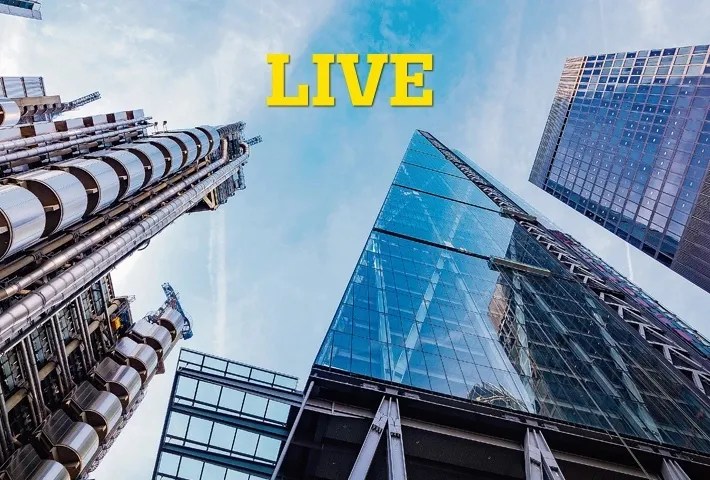FTSE 100 close: Midcap index storms up nearly 3.5 per cent and pound surges after US inflation data

London’s FTSE 100 closed in the green on Tuesday as investors breathed a sigh of relief after US inflation came in below expectations in October.
The blue-chip FTSE 100 ended up 0.2 per cent to 7,440.47 while the mid-cap FTSE 250, which is more aligned with the health of the domestic economy, jumped 3.47 per cent to 18,536.13.
The rally came after figures from the Bureau of Labor Statistics showed the US consumer price index (CPI) was flat month-on-month in October.
This meant the annual rate of inflation fell to 3.2 from 3.7 per cent last month, lower than economists’ expectations. Analysts had pencilled in a figure of 3.3 per cent.
“The October CPI report gives Fed officials more confidence that inflation is on a firm downward trajectory, which should stay their hand on any additional rate hikes,” Michael Pearce, lead US economist at Oxford Economics said.
This led the pound to jump around 1.6 per cent to trade at $1.2480 as markets bet that the Fed’s battle against inflation was coming to an end. A stronger pound can sometimes constrain the FTSE 100, which is stacked with companies who earn most of their revenue abroad.
Indices across Europe joined the rally, with markets in Paris and Frankfurt rising over 1.5 per cent.
Sales, marketing and support services group DCC was the biggest winner on the FTSE 100, rising nearly 12 per cent after publishing its full-year results. The company reported an increase in operating profit of 12 per cent and also announced the acquisition of Progas, a nationwide distributor of LPG in Germany, for £140m.
Informa meanwhile jumped 5.4 per cent after raising its full-year guidance and extending a share buyback.
Glencore climbed 4.6 per cent after the miner agreed to buy a 77 per cent stake in Canadian miner Teck Resources’ steelmaking coal business for a whopping £5.6bn.
Vodafone fell 5.2 per cent after it reported a 4.3 per cent year-on-year decline in revenue in the first half as it struggled to return to profit.
“Revenue and operating profits are heading in the wrong direction for Vodafone, reflecting recent disposals and the structural challenges at hand,” Aarin Chiekrie, equity analyst at Hargreaves Lansdown said.
“Huge sums of money have been pumped into building out fibre networks and snapping up parts of the 5G spectrum and that’s weighing on cash flows,” he continued.